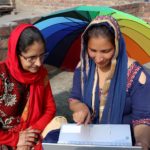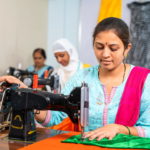This project seeks to digitise historical plant–level data on labour outcomes from India. In addition to monthly, plant–level data on various labour outcomes, these data contain unique plant identifiers, which can be combined with existing cross–section surveys of Indian manufacturing plants to obtain new panel data on Indian manufacturing plants for the 1980s and 1990s.…
Digitising Historical Plant Level Panel Data on Labour Outcomes
Ticket to Thrive: Effect of Safe Public Transportation on Mobility and Employment of Women in Urban India
In India, only 20% of women participate in the labour force—less than in Bangladesh and Saudi Arabia—hampering national economic growth and women’s financial independence. This project investigates how safe public transportation, specifically the Delhi Metro, can alleviate mobility constraints that keep 60% of working women within 2km of their homes. We leverage past and future…
Commuting Constraints and Labor Productivity: A Field Experiment on Women’s Mobility in India
Can alleviating commuting constraints enhance the labor supply and labor productivity of women from low-income households? This project studies this question in collaboration with the largest gig-firm in India, engaging 40,000 gig-workers, including 17,000 female workers. These workers commute to clients’ residences to provide a variety of services, including salon treatments, spa services, and home…
Together to Work? Role of Travel Buddies on Women’s Employment and Mobility
The labour market participation rate for women in India is significantly low, with only 25 women for every 100 men being engaged in the workforce. This striking disparity is far below the global average of 66.7 women for every 100 men. Existing data and observations suggest that societal norms and concerns about safety restrict many…
From Jobs to Careers
Women’s participation in the labour market increases economic growth at both the national and firm level, yet women worldwide still face significant labour market challenges. Current research on women’s labour market experience in developing countries mainly focuses on short-term jobs. We propose shifting the focus from jobs to “careers,” i.e., occupations characterized by a long-term…
Women in Firms
Female labour force participation in developing countries like India is low and has been falling (Klasen and Pieters 2015; Fletcher et al. 2017). Safer workplaces may encourage more women to apply for work (Sudarshan and Bhattacharya 2009; Jayachandran 2020) especially in countries where stigma related to sexual harassment is high (Borker 2017, Sharma 2022). The…
Long–Run Social Norms and Female Labour Force Participation in India
India’s gender inequality and low female labour force participation rate (FLFP) are in stark contrast to its position as the fifth-largest economy in the world. Fewer than 25% of women work outside the home, and historical patriarchal norms are widely believed to be a factor. However, research on the impact of social norms on female…
LinkinOut Harassment
The issue of sexual harassment in the workplace remains pervasive, despite being illegal and a violation of human rights. Approximately one in two women experience sexual harassment during their work lives, with half of them experiencing three or more incidents. However, reporting of harassment is often hindered by stigma, psychological costs, and fear of retaliation.…
Studying the Latent Demand for Female Labour in Rural India
In lower-middle-income countries, it is estimated that 35.5% of women over 15 participated in the labour force in 2018. Despite India’s rapid economic growth and increasing educational attainment, female labour force participation (FLFP) continues to lag behind, where the figure stands at a mere 29.4% (PLFS, July 2021-June 2022). There has been a burgeoning body…
Depression Treatment and Female Performance in the Labour and Marriage Markets in India
Depression is the leading cause of disability worldwide, with a lifetime prevalence of 15-20% and a higher prevalence among the poor. Depression symptoms include anhedonia, impaired attention, and fatigue. People with depression and their families also face pervasive stigma and discrimination, particularly in India and other LMICs. Impacts are felt through the household by requiring…









